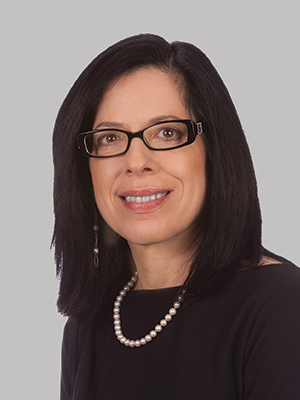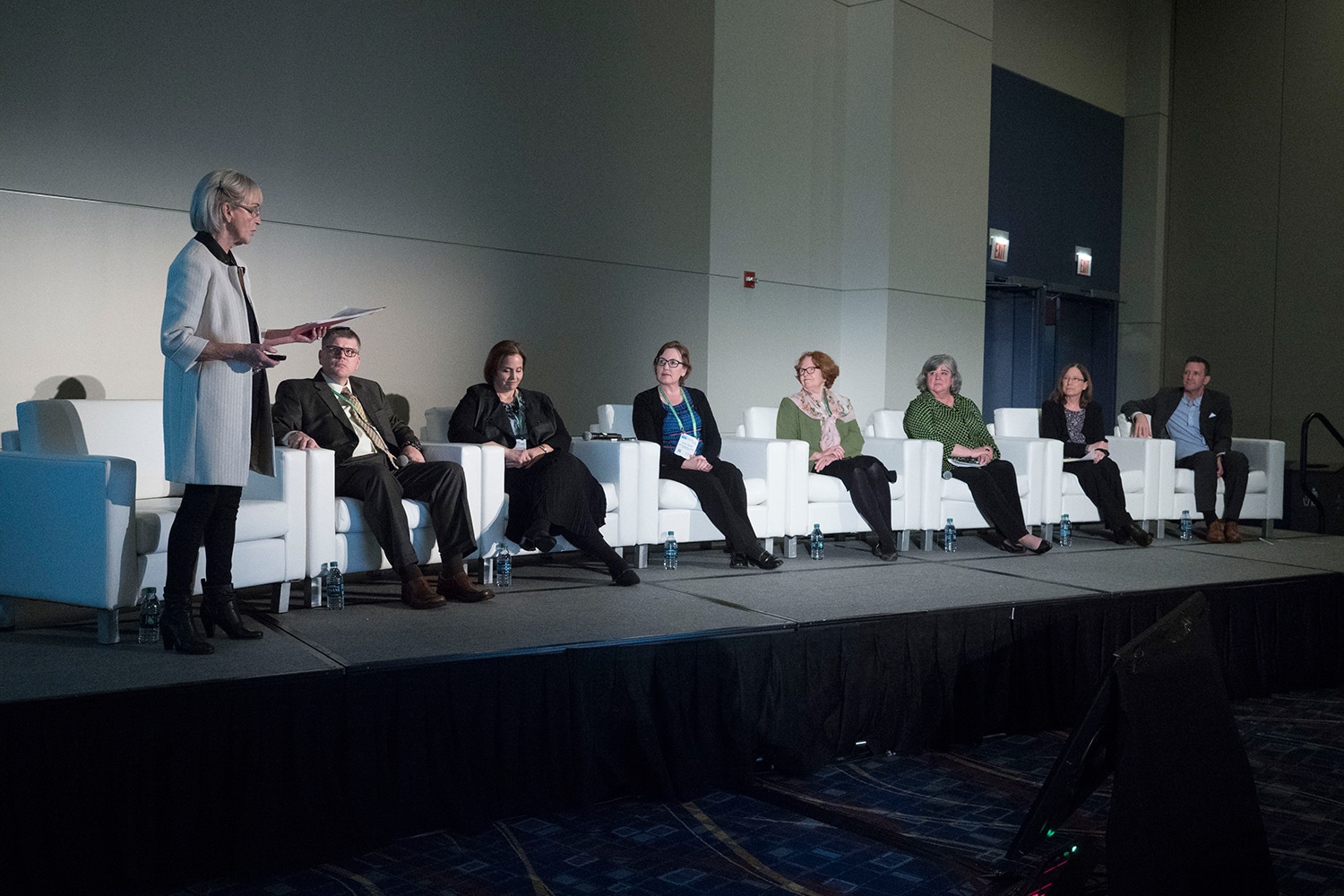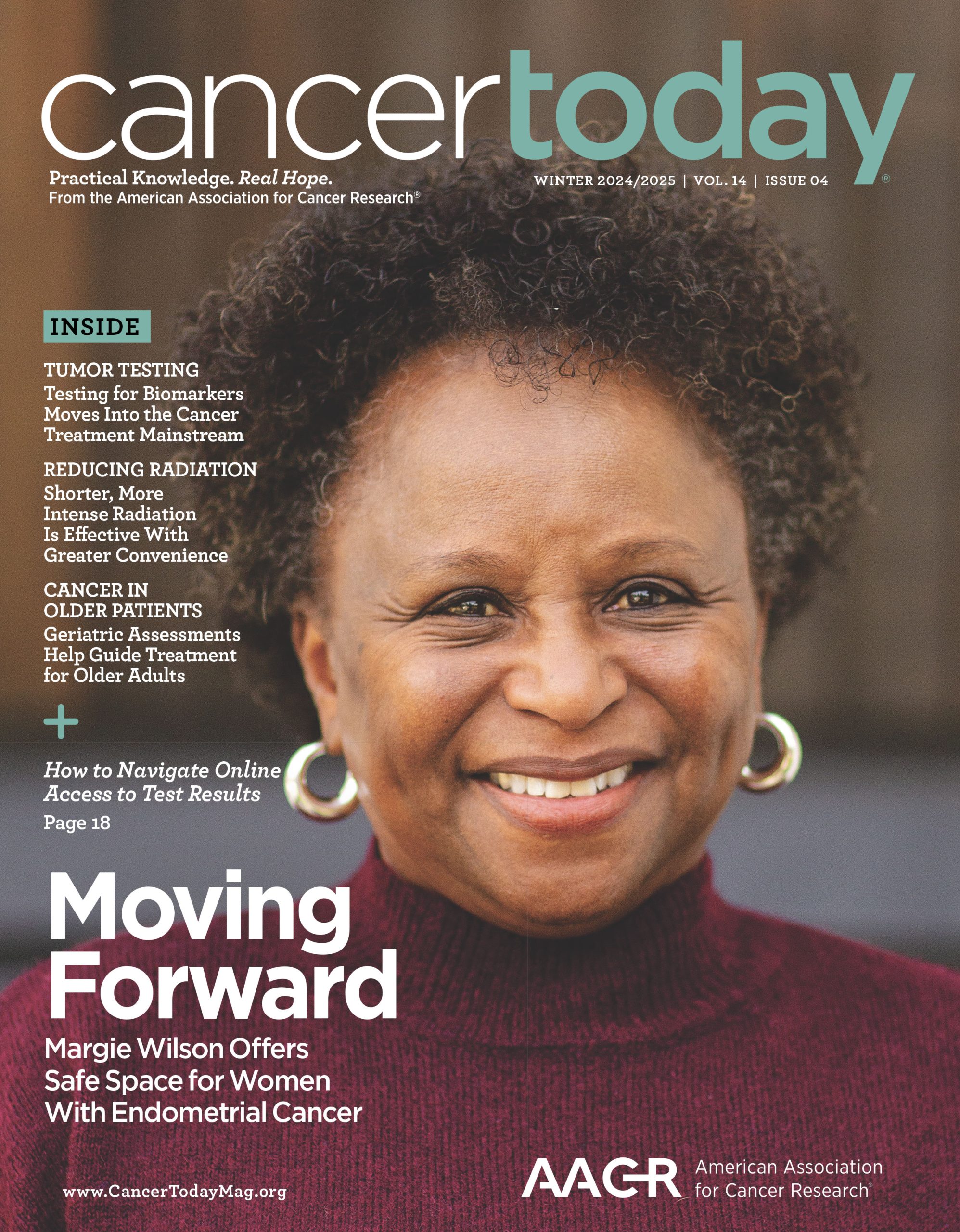
Elizabeth M. Jaffee, MD Photo © AACR/Vera LaMarche
THANKS TO DECADES OF CANCER RESEARCH that have brought us groundbreaking discoveries and treatments, 15.5 million U.S. cancer survivors—mothers, fathers, sons and daughters—have more time to spend with their loved ones. That number is only going up, to an estimated 26.1 million by 2040.
For these millions of cancer survivors, the start of their cancer journey is also the beginning of their survivorship voyage. For most, this comes with complications and lasting side effects. Many cancer survivors continue to deal with the physical, mental and emotional impact of their cancer diagnosis long after their final treatment. Thousands of survivors also face financial challenges that result from or are exacerbated by their cancer diagnosis and treatment.
As the number of cancer survivors grows, currently representing nearly one out of every 20 people in the U.S., it is vitally important that we step up our efforts to address their issues throughout their life spans. During my year as president of the American Association for Cancer Research (AACR), I’ve made survivorship-related issues a priority. There is a pressing need to increase research on the long-term effects of cancer treatments and how best to mitigate adverse physical impacts on survivors. Furthermore, we need to develop effective strategies to address persistent gaps in supportive models of care, including cancer survivorship care plans to help survivors transition from their oncologist to their primary care practitioner with ease and limited anxiety.
The AACR has a solid foundation to build on to assist cancer survivors on a long-term basis. For decades, the AACR has engaged with survivors and supported research on survivorship. The AACR Scientist↔Survivor Program (SSP)—conceptualized and implemented by AACR CEO Margaret Foti, PhD, MD (hc), and Anna Barker, PhD, 20 years ago—is a model program that builds enduring partnerships among leaders of the scientific, cancer survivor and patient advocacy communities. The program offers advocates science lectures tailored to a lay audience, small group discussions and other opportunities to exchange information on key aspects of cancer research, survivorship, advocacy and public policy.
At its Annual Meeting in April 2018, the AACR sponsored a special panel titled “The Cancer Survivorship Landscape: Potential Focus Areas for the Future” in memory of Jimmie C. Holland, MD, a leading advocate for emotional and psychological support for cancer patients and survivors. Several cancer survivors and leaders in the survivorship field discussed the needs of this ever-growing cohort of people. Many recommendations came out of the session, but the central theme that tied them together was the need to provide more support: in connecting survivors to resources, in helping health care professionals better appreciate survivor needs, and in enabling researchers to better understand the biology of survival and evidence-based strategies for psychosocial support.
The AACR has made a significant commitment to grow the SSP and the Survivor and Patient Advocacy Program in the coming years. As a first step, the AACR is bringing on board a Director of Strategic Patient Advocacy and Engagement in its Washington, D.C., Office of Science Policy and Government Affairs. The director will build alliances with cancer survivor communities and patient advocacy organizations to establish synergistic partnerships and achieve mutually desired goals. Additionally, the AACR intends to help ensure that the perspectives of cancer patients and survivors are incorporated into the U.S. Food and Drug Administration’s drug evaluation process. With the move toward personalized medicine and patient-centered drug development, this could not be more important. I’m confident that the AACR will help lead the way in ensuring that the voices of cancer survivors are heard at all stages of the drug evaluation process.
The AACR hears the message from the survivor community loud and clear. As AACR president, I’m very pleased to say that we’re ready, eager and committed to accelerating our leading role in providing improved support.
Cancer Today magazine is free to cancer patients, survivors and caregivers who live in the U.S. Subscribe here to receive four issues per year.





